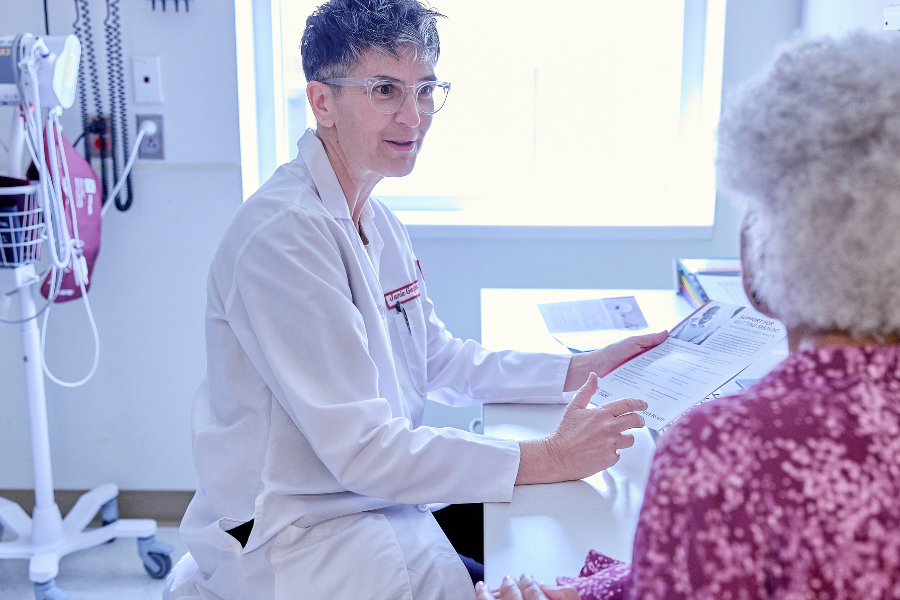When faced with lung disease, one of the first and most important decisions you’ll make is where you go for treatment.
Many factors will go into this decision. Some may be outside of your control—such as how far the hospital is from home or whether your insurance is accepted. But other factors are up to you.
Dr. Nathaniel Marchetti, a pulmonologist at the Temple Lung Center, encourages patients to consider the following five things when choosing a lung program:
1. The Experience of the Medical Staff
A high-quality lung program will have a large staff of doctors who specialize in a wide variety of lung conditions, including the most complex.
Consider the doctors’ level of expertise within their specialties,” Dr. Marchetti says. “A good lung program is staffed by experienced specialists who offer treatments for a number of conditions.”
Dr. Marchetti adds that patients should feel comfortable asking their doctor how many other patients they have treated with the same condition and how many times they have performed specific procedures. The higher those numbers are the better.
2. The Range of Treatment Options
Because no two lung patients are the same, “one-size-fits-all” treatments should be a warning flag.
“Sometimes patients are told there’s only one treatment for their lung condition,” Dr. Marchetti says. “It’s important to be seen at a lung center that offers multiple options for your condition.”
The Temple Lung Center offers treatments that range from simple antibiotics, to oxygen therapy, to very complex surgery and transplantation. After an examination and diagnosis, Temple’s lung specialists create a customized treatment plan for each patient.
3. Cutting-Edge Research & Clinical Trials
In addition to offering multiple treatment options, look for a hospital or lung center that has a strong research program and doctors who are on the cutting-edge of care.
“A lung program engaged in research and clinical trials may offer treatment options that you won’t find anywhere else,” Dr. Marchetti says. “If you’re going to invest significant time and resources into finding the best approach for your condition, don’t go to a place doing the same things for their patients that can be obtained locally."
The Temple Lung Center is a world leader in unraveling the mechanisms of lung disease, discovering new treatments and testing lifesaving devices. Much of Temple’s pulmonary research takes place in the Center for Inflammation, Translational and Clinical Lung Research, which is made up of scientists who study how lung disease develops and can best be treated.
4. Specialized Centers & Programs
One sign of a strong lung center is the presence of specialized programs for specific lung diseases.
“It’s a good sign when a hospital can offer specialized centers, institutes or programs,” Dr. Marchetti says. “That means the hospital has specialists who spend most of their time focused on a specific lung condition, whether it’s allergies or COPD.”
Temple offers a number of specialized centers and programs for a wide range of lung problems.
5. A Full Array of On-Site Resources & Specialists
For highly complex lung procedures, it’s important that you seek out a hospital with a full complement of specialties and facilities. This means it has the right staff, resources and technology on site, in case you need additional medical attention beyond lung care.
“For instance, if you’re considering lung transplant surgery, look for a hospital that also offers you immediate access to specialists in infectious diseases, kidney disease and cardiology,” Dr. Marchetti says. “That way, you’ll be in the best hands should you need additional specialty care before, during and after a procedure.”


